EI Publications
Listed below is
information about many of the conference papers, reference manuals, videos,
websites, and peer-reviewed articles that have been developed as part of the
Environmental Inquiry program.
Cornell Scientific Inquiry Series
Together with the National Science Teacher's Association, EI is publishing a
series of manuals aimed at enabling high school students to carry out authentic
environmental science research. Each of the manuals includes a student edition
and a teacher's guide, and all are available from NSTA at 1-800-277-5300 or
http://store.nsta.org.
Click on the book covers below for more information.
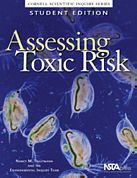
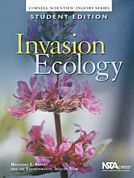
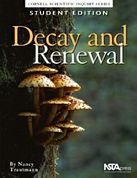
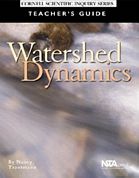
Related Teacher Resource Manuals
Barnaba, E.M., M.E. Krasny, L.M. Kasperek, S. Hoskins, and J. Hope. 2000.
Explorations from an Aerial Perspective. Cornell Media Services. Cornell
Media Services. 210 pp.
Description and order information.
Edelstein, K.E., N.M. Trautmann, and M.E. Krasny. 1999. Watershed Monitoring
Handbook for Educators. Cornell Media Services. 210 pp.
Description and order information.
Schneider, R, ME Krasny, and S Morreale. 2001. Hands-on Herpetology: Exploring
Ecology and Conservation. National Science Teachers Association. Arlington,
VA. Order
this publication through the NSTA online store.
Trautmann, N.M. and M.E. Krasny. 1998. Composting in the Classroom.
Kendall/Hunt, Dubuque, IA. 115 pp.
Available for download without cost.
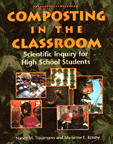 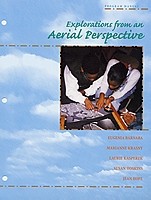
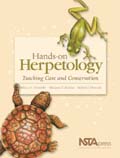
Videos
Environmental Inquiry: Learning Science as Science is Practiced (an introduction
to EI). Description and order information.
It’s Gotten Rotten (an introduction to composting as a topic
for scientific inquiry for high school students). M.E. Krasny and N.M. Trautmann,
executive producers. 1996. Photosynthesis Productions, Inc. Ithaca, NY. Description
and order information.
Articles Available Online
Many
of these articles are available in PDF format, which requires the free Adobe
Acrobat Reader.
Trautmann, N. and J. MaKinster. 2005. Teacher/Scientist partnerships
as professional development: Understanding how collaboration can lead to inquiry. Paper presented at the 2005 International Conference of the Association for
the Education of Teachers of Science, Colorado Springs, CO, January 19-23,
2005.
DePriest, T. and M. Krasny. 2004. Engaging county educators in science
education reform: The New York 4-H Environmental Inquiry program. Journal
of Extension 42(2).
Trautmann, N., J. MaKinster, and L. Avery. 2004. What makes inquiry
so hard? (And why is it worth it?).Paper presented at the annual meeting
of the National Association for Research in Science Teaching, Vancouver, BC,
April 1-3, 2004.
Bartel, A.S., M. Krasny, E. Harrison. 2003.Beyond
the binary: Approaches to integrating university outreach with research and
teaching Journal of Higher Education Outreach and Engagement 8(2):
89-104. (Posted with the permission of the Journal of Higher Education Outreach
and Engagement, formerly the Journal of Public Service and Outreach, Institute
of Higher Education, Meigs Hall, Universityof Georgia, Athens, Georgia 30602).
Trautmann, N., W. Carlsen, B. Yalvac, M. Cakir, and C. Kohl. 2003. Learning
nature of science concepts through online peer review of student research.
Paper presented at the annual meeting of the National Association for Research
in Science Teaching, Philadelphia, PA, March 22-26, 2003.
L. Avery, N. Trautmann, and M. Krasny. 2003. Impacts
of participation in a GK-12 fellowship program on teachers'
conceptions and use of inquiry science. Paper presented at the annual
meeting of the National Association for Research in Science Teaching, Philadelphia,
PA, March 22-26, 2003.
Trautmann, N. 2003. What can university
scientists offer to K-12 schools? The Volunteer Monitor. 15(1): 12-13.
Gift, N. and M.E. Krasny. 2003. The great fossil fiasco: Teaching about
peer review. Journal of American Biology Teacher 65(4): 270-278. (Posted with permission from the National Association of Biology
Teachers)
Krasny, ME and R Doyle. 2002. Participatory
approaches to extension in a multi-generational, urban community gardening
program. Journal of Extension 40(5).
Trautmann, N. M., L. M.Avery, M. E. Krasny, and C. M. Cunningham. 2002. University
science students as facilitators of high school inquiry-based learning.
Poster paper presented at the annual meeting of the National Association for
Research in Science Teaching, New Orleans, LA, April 7-10.
Avery, L.M. and D.Z. Meyer. 2001. The
history of a curricular technology: An exemplar in the use of science &technology
studies as a research lens. Paper presented at the 6th Meeting of the
International History, Philosophy and Science Teaching Group, Denver, CO,
November 7-10.
Avery, L.M., and W.S. Carlsen. 2001. Knowledge,
identity, and teachers' multiple communities of practic. Paper presented
at the annual meeting of the National Association for Research in Science
Teaching, St. Louis, MO, March 25-28.
Carlsen, W.S. 2001. The sociological
context of environmental science and its use in rethinking scientific inquiry.
Paper presented at the annual meeting of the National Association for Research
in Science Teaching, St. Louis, MO, March 25-28.
Carlsen, W.S., C.M. Cunningham, and N.M. Trautmann. 2001. Peer review by
school science students: Its role in scientific inquiry. Paper presented
at the annual meeting of the National Association for Research in Science Teaching,
St. Louis, MO, March 25-28.
Cunningham, C.M., D.Z. Meyer, and L.M. Avery 2001. Promoting sociologically
authentic inquiry in school science communities. Paper presented at the
annual meeting of the National Association for Research in Science Teaching, St. Louis, MO, March 25-28.
Meyer, D.Z., and W.S.Carlsen 2001. Curriculum design and legitimate peripheral
participation by preservice teachers. Paper presented at the annual meeting
of the National Association for Research in Science Teaching, St. Louis, MO,
March 25-28.
Meyer, D.Z., and L.M. Avery 2001. A Science and Technology Studies Lens
for Studying Teacher Practice. Paper presented at the annual meeting of
the American Educational Research Association, Seattle, WA, April 10-14.
Krasny, M.E. 1999.
A change in perspective: Using aerial photos to study watersheds.
The Volunteer Monitor 11(2).
Trautmann, N.M. 1999. Bioassays
bring real science to the classroom. The Volunteer Monitor 11(2).
Journal Articles and Book Chapters
Doyle, R and ME Krasny. 2003. Participatory Rural Appraisal as an approach
to environmental education in urban community gardens. In press, Environmental
Education Research 9(1).
Trautmann, N.M., W.S. Carlsen, C. J. Eick, F. E. Gardner, Jr., L. Kenyon,
H. Moscovici, J.C. Moore, M. Thomson, and S.S. West. 2003. Online peer
review: Learning science as it's practiced. Journal of College Science
Teaching XXXII (7): 443-447.
Krasny, ME and S-K Lee. 2002. Social learning as an approach to environmental
education: Lessons from a program focusing on non-indigenous, invasive species.
Environmental Education Research 8(2):101-119.
Mordock K and ME Krasny. 2001. Participatory Action Research: a theoretical
and practical framework for environmental education. Journal of Environmental
Education 32(3):15-20.
Brown, WT, ME Krasny, and N Schoch. 2001. Volunteer monitoring of non-indigenous,
invasive species. Natural Areas Journal 21:189-196.
Gurwick, NP and ME Krasny. 2001. Enhancing student understanding of environmental
research. Journal of the American Biology Teacher 63:236-241.
Trautmann, N.M. W.S. Carlsen, M.E. Krasny, and C.M. Cunningham. 2000. Integrated
Inquiry. The Science Teacher. 67(6): 52-55.
Carlsen, W.S. 1999. Domains of teacher knowledge. In N. G. Lederman
and J. Gess-Newsome (eds.), Examining pedagogical content knowledge: The construct
and its implications for science education (pp. 133-144). Dordrecht, Netherlands:
Kluwer. Carlsen, W.S. 1998. Engineering design in the classroom: Is it good science
education or is it revolting? Research in Science Education 28(1): 51-63. Carlsen, W.S. 1997. Never ask a question if you don't know the answer: The
tension in teaching between modeling scientific argument and maintaining law
and order. Journal of Classroom Interaction 32(2): 14-23. Cunningham, C.M. 1998. The influence of teachers’ sociological understanding
of science (SUS) on curricular innovation. Research in Science Education
28(2): 243-257.
Cunningham, C.M. and J.V.Helms.1998. Sociology of science as a means to
a more authentic, inclusive and liberatory science education. Journal
of Research in Science Teaching 35: 483-499.
Cunningham, C.M. 1997. Who knows?: The influence of teacher's sociological
understanding of science (SUS) on knowledge, authority, and control in the
classroom. Journal of Classroom Interaction. 32(2): 24-34.
Krasny, M.E. 1999. Reflections on nine years of conducting high
school research programs. Journal of Natural Resources and Life
Sciences Education 28:1-7.
Krasny, M.E. and T.C. Marchell. 1993. Expanding the Science
Pipeline: the Cornell Natural Resources Experience. Journal of
Forestry 91:34-38.
Muller, C. B., & Carlsen, W. S. 1997. Fostering educational
innovation at the level of individual professionals in K-12: A case
study. Proceedings of the 1997 ASEE/IEEE Frontiers in Education
Conference. Piscataway, NJ: Institute of Electrical and Electronics
Engineers.
Related Cornell Web Sites
Cornell
Science Inquiry Partnerships
A collection of curriculum resources developed by Cornell graduate students
working with secondary teachers. Includes a wide range of long- and short-term
inquiry activities for both high school and middle school science classes.
Composting
in Schools
An overview of composting as a topic for scientific inquiry for students of
all ages. Includes compost science and engineering, possibilities for student
research, tales of weird and unusual composting, and information about how
to compost either in the classroom or outside.
Online
Manual of LTER Classroom Activities
Activities to introduce high school students to basic ecological principles
and inquiry skills using data from the National Science Foundation's Long
Term Ecological Research sites.
Garden Mosaics
Garden Mosaics refers to two beautiful mosaics found in urban community gardens
across North America. First are the gardeners, who represent a mosaic of cultures
from around the world. Second are the mosaics of plantings that these gardeners
create. Garden Mosaics is a Cornell University program.
|

